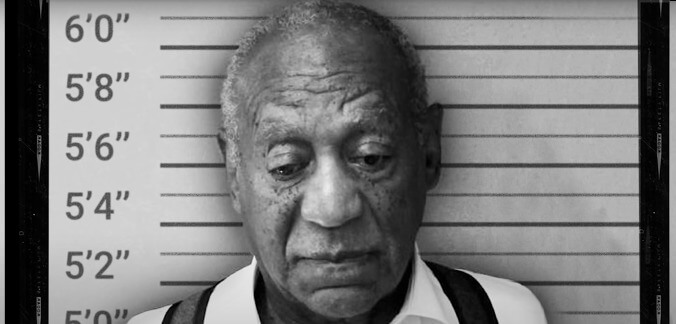W. Kamau Bell makes a compelling case for why We Need To Talk About Cosby
Plus, a look back at one of TV's most ruefully optimistic fairy-tale endings

Here’s what’s happening in the world of television for Sunday, January 30. All times are Eastern.
Top pick
We Need To Talk About Cosby (Showtime, 10 p.m.): In the premiere of this four-part documentary series about disgraced (and currently on the loose) comedy icon and convicted sexual predator Bill Cosby, Emmy-winning comedian W. Kamau Bell grapples with a lifetime of Cosby-worship. So do we all. “America’s Dad,” as you’ll recall, not only turned into a grumpy old man scolding Black kids to pull their pants up, but was finally revealed to have been a serial rapist all while The Cosby Show was appointment viewing for a nation.
Bell, in addition to being a formidable stand-up in his own right, is no stranger to humorously yet pointedly forcing audiences to confront some very inconvenient truths. In this case, that means coming to terms with how the juggernaut that was Cosby’s effortless charisma and towering talent (and his position as a powerful Black man in Hollywood) enabled decades of credible allegations of sexual assault to be hand-waved away, all so that we could invite Cosby into our living rooms each week.
In his review of Bell’s thoughtful and deeply uncomfortable examination of cultural battle lines and the sordid reality of a cultural icon, Stephen Robinson calls We Need To Talk About Cosby, “an insightful yet sobering examination of how a monster fully infiltrated our cultural DNA.”
Regular coverage
Euphoria (HBO, 9 p.m.)
The Righteous Gemstones (HBO, 10 p.m.)
Wild card
Sports Night (For rent on Amazon, Vudu, Google Play, YouTube): Sure, you have to pay to rent this early Aaron Sorkin effort, but it’s worthwhile, particularly for the series’ final episode, “La Forza Del Destino.” (Reviewed by the estimable Donna Bowman back in the days when T.V. Club Classic was still a wonderful and unremunerative thing.)
For those in the know, this sort-of sitcom kicked off Sorkin’s examination of the private lives of people with very public jobs, here in the form of a struggling, ESPN-like sports network filled with the requisite neurotic, verbose, yet dedicated and principled types.
Before Sorkin-isms became a cliché in their own right, and long before the self-seriousness of The Newsroom or [shudder] Studio 60 On The Sunset Strip showed Sorkin’s penchant for occasionally tone-deaf speechifying, Sports Night was a bracing workplace comedy about hard-working people who gave a damn about integrity, quality work in the face of corporate pressure to compromise, and persnickety grammar jokes.
In the series finale, it looks like the suits have won, with Sports Night’s parent network of uncaring bean-counters and soulless suits seemingly having scuttled the staff’s dreams of putting on a great, idiosyncratically insightful daily enterprise.
And then, because Sorkin is Sorkin and Mr. Smith Goes To Washington taught him the dramatic potential of one grand gesture, Sports Night introduces its most fanciful element—a principled billionaire in the form of Agent Coulson himself, Clark Gregg’s wealthy entrepreneur Calvin Trager. Sports Night (the show, and the show within the show) becomes the beneficiary of the sort of happy ending Sorkin has assured us we’ll all find, as long as we care enough about doing our jobs well, and with honor.
In the same way that The West Wing assured us that American politics will always rise above mere partisan hackery, bigotry, and greed thanks to some ineffable, innate goodness in the spirit of America, Sports Night offers us another deus ex machina fairytale ending. That being, when it comes right down to it, a rich benefactor will eventually recognize that a ragtag team dedicated to putting out a damn good product deserve to be rewarded with something other than scorn, disrespect, and unemployment. Take from that what you will.